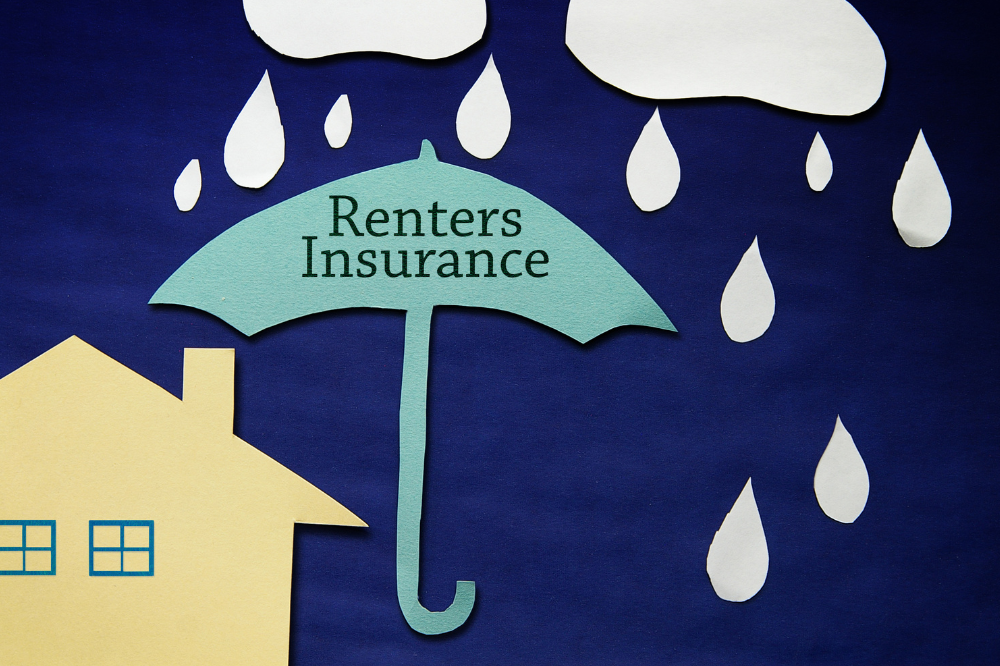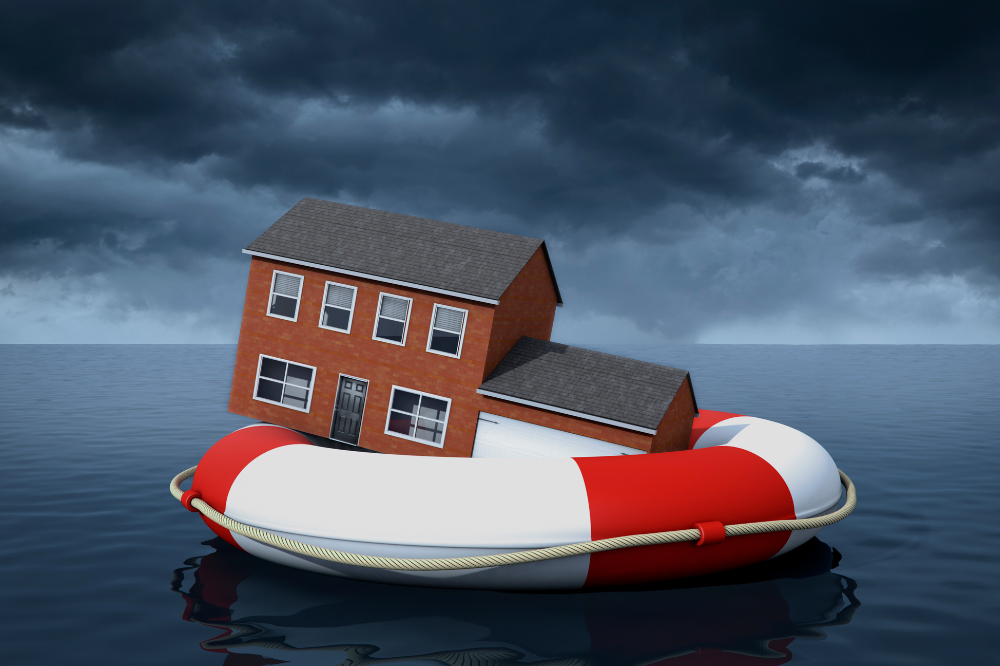What is renters insurance and what does it cover?

Renters insurance is a type of property insurance that covers your personal belongings in the event of damage or theft. It also provides liability if someone is injured while on your property.
It is a type of insurance that provides coverage for tenants in the event of damage to their rental property or personal belongings. It can also provide a liability policy if someone is injured while on the premises. Most insurance policies will cover the cost of repairs or replacement up to a certain limit, as well as any medical expenses that may be incurred as a result of an injury.
This insurance is not required by law, but it is a good idea to have in case of an emergency. Many landlords require their tenants to carry insurance, so it is important to check with your landlord before signing a lease. Even if your landlord does not require it, carrying insurance can give you peace of mind knowing that you and your belongings are protected.
When shopping for insurance, be sure to compare rates and coverage options from different insurers to get the best policy for your needs. You may also want to consider adding additional coverage such as flood or earthquake insurance, depending on where you live.
Most renter’s insurance policies have three main components:
- Personal property coverage
- Liability coverage
- Loss-of-use coverage.
Personal property coverage reimburses you for the value of your belongings if they are lost, damaged, or stolen. The amount of coverage you need depends on how much stuff you have and how much it would cost to replace it.
Liability coverage protects you from having to pay out of pocket if someone is injured while on your property. It also covers damage that you (or a member of your household) may cause to someone else’s property.
Loss-of-use coverage reimburses you for additional living expenses if you have to move out of your home while it is being repaired after a covered disaster.
Now that you know a little more about renters’ policies, be sure to get quotes from several different insurers and compare them side by side to find the best coverage for your needs. Protect yourself and your belongings by getting the right renters policy today.
How much does renters insurance cost on average, and what discounts are available for those who qualify?

According to the National Association of Insurance Commissioners, the average cost of a renters’ policy is about $180 per year. However, several factors can affect the price, such as the value of your belongings and the amount of coverage you desire. Some renter’s insurance policies also offer discounts for those who have smoke detectors or security systems installed in their homes.
Additionally, some insurers offer discounts for those who bundle their renter’s insurance with other types of coverage, such as auto or homeowners insurance. By shopping around and comparing rates, you can find the best deal on renters’ coverage to fit your needs and budget.
The average cost of renters coverage is $15 to $30 per month, depending on the level of coverage you choose. Discounts may be available for those who qualify, such as those who have a good credit score or who bundle their renter’s insurance with other types of insurance.
Types of renters insurance
There are four main types of renters insurance:
1. Property damage coverage:
This type of coverage helps pay to repair or replace your personal belongings if they’re damaged or destroyed in a covered event, like a fire or theft.
2. Liability coverage:
This type of coverage can help protect you financially if you’re found responsible for someone else’s injuries or property damage.
3. Medical payments coverage:
This type of coverage can help pay for the medical expenses of someone who is injured on your property.
4. Loss of use coverage:
This type of coverage can help reimburse you for additional living expenses if you have to move out of your home temporarily because of a covered event.
It can also provide coverage for certain types of personal property, like computers, jewelry, and bicycles. You may need to purchase additional coverage for these items if you want them to be fully protected.
When you’re shopping for insurance, be sure to ask about all the coverage options available to you and compare quotes from multiple insurers to find the best policy for your needs
Does renters insurance cover damage caused by flood?
If you’re a renter, you might be wondering if your insurance policy covers flood damage. The answer is, it depends. Most standard renters’ policies do not cover flood damage, but you may be able to purchase a separate flood insurance policy. Even if your policy doesn’t cover flood damage, there are still some things that it will cover. For example, most renters’ policies will cover water damage that is caused by a burst pipe or other water heater malfunction. So, if you’re concerned about flood damage, be sure to read your policy carefully and talk to your agent about whether or not you need additional coverage.
What coverage does flood insurance provide to renters?
Flood insurance provides renters with coverage for damage to their belongings and reimbursement for any additional living expenses incurred if their home becomes uninhabitable due to flooding. Some policies may also provide coverage for lost wages if the policyholder is unable to work because of the flooding.
Do renters need flood insurance?
Renters need flood insurance if they live in an area that’s prone to flooding. Even if you don’t live in a high-risk area, your landlord may require you to have flood insurance. Flood insurance covers damage to your personal property caused by a flood. It also reimburses you for temporary living expenses if your home is uninhabitable due to a flood. If you’re considering buying flood insurance, contact your insurance agent or company to find out what options are available and how much it will cost. You can also visit the National Flood Insurance website for more information.
What are private flood insurance policies for renters?
Renters often overlook the need for flood insurance, assuming that their landlord’s policy will cover any damages. However, most standard homeowner’s insurance policies exclude coverage for floods. This means that if your rental unit is damaged by a flood, you will likely have to pay out of pocket for repairs and replacement belongings.
Private flood insurance for renters can help protect you from financial ruin in the event of a flood. These policies typically cover both the structure of the rental unit and your personal belongings inside. Some policies may also provide additional living expenses if your unit is uninhabitable after a flood.
While private insurance for renters is not required by law, it can be a wise investment if you live in an area at risk for flooding. If you are considering purchasing a policy, be sure to shop around and compare coverage options to find the best value for your needs.
The role of the Federal Emergency Management Agency in flood relief for renters
The FEMA provides flood relief for renters through the National Flood Insurance Program (NFIP). The NFIP offers financial assistance to renters who have been displaced from their homes due to flooding. FEMA also provides temporary housing assistance for renters who have been displaced by a disaster. FEMA’s Temporary Housing Assistance program provides funding for hotels, motels, and other temporary housing options for eligible disaster victims.
In addition to providing financial assistance and temporary housing, FEMA also helps renters find new permanent housing. FEMA’s Housing Assistance program provides funding to help eligible disaster victims repair their homes or find new permanent housing. The program also provides rental assistance for those who are unable to return to their pre-disaster home due to damage from the disaster.
FEMA’s mission is to help people before, during, and after disasters. FEMA’s assistance programs for renters are just one way that the agency helps people recover from a disaster. For more information about FEMA’s programs and services, visit www.fema.gov or call 1-800-621-FEMA (3362).
Types of flood insurance policies for renters

There are two types of flood insurance policies for renters:
1. National Flood Insurance Program (NFIP)
2. Private flood insurance
The NFIP is a government-sponsored program that offers flood insurance to renters, while private flood insurance is offered by private insurers. Both types of policies can provide financial protection in the event of a flood, but they vary in terms of coverage and cost.
National flood insurance program
The NFIP is administered by the FEMA. It offers two types of policies for renters: the Standard Flood Insurance Policy (SFIP) and the Residential Condominium Building Association Policy (RCBAP). The SFIP covers damages to personal property up to $100,000, while the RCBAP covers damages to personal property up to $250,000. The NFIP also offers flood insurance for renters who live in federally subsidized housing, such as public housing or Section 8 housing.
Private flood insurance
Private insurer policies vary in terms of coverage and cost, but they typically provide more comprehensive coverage than the NFIP. For example, some private insurers offer policies that cover damages to personal property up to $500,000 or more. In addition, private insurance policies may cover the flooding caused by sewage backup or sump pump failure, while the NFIP does not.
Renters should consider both the NFIP and private flood insurance when shopping for coverage. The best option will depend on factors such as the value of your personal property, the location of your rental property, and your budget.
7 Ways renters insurance protects you from flood damage
1. It protects your personal belongings from flood damage.
2. It covers the cost of temporary housing if your home is uninhabitable due to flood damage.
3. Renters insurance reimburses you for the cost of repairs to your home if it is damaged by a flood.
4. Renters insurance pays for the replacement of any items that are damaged or destroyed by a flood.
5. Renters insurance covers the cost of medical treatment if you are injured in a flood.
6. Renters insurance pays for the repair or replacement of any appliances or electronics that are damaged by a flood.
7. It provides financial protection if you are sued for damages caused by a flood.
What could happen if a renter does not have flood insurance coverage if they experience a flood?
When most people think of insurance, they think of coverage for their home or car. However, insurance is also important for renters. For example, if a renter does not have flood insurance coverage and their apartment is flooded, they will be responsible for the cost of repairing the damage. This can be extremely expensive, and it may even force the renter to move out of their apartment while repairs are being made. In addition, the renter may also be responsible for any belongings that are damaged in the flood. As a result, it is important for renters to be aware of the potential risks associated with flooding and to ensure that they have adequate insurance coverage.
If you live in a high-risk flood area and your mortgage lender requires you to have flood insurance, not having coverage could put you at risk of losing your home. If you live in a low or moderate flood risk area, not having coverage could still result in significant financial losses if your home is damaged or destroyed by a flood. In either case, it’s important to weigh the risks and benefits of flood insurance before making a decision.
If a renter experiences water damage due to a flood, what should they do?
If a renter experiences water damage due to a flood, the first thing they should do is contact their landlord or apartment manager. If the damage is severe, they may need to evacuate the premises and find temporary housing. Once the immediate danger has passed, the next step is to start the cleanup process. To do this, renters will need to remove all wet items from the home, including carpeting, furniture, and clothing. They should also open all windows and doors to allow for proper ventilation. Once the home is dry, renters can begin to repair any damage that has been done. In some cases, they may be able to do this themselves. However, if the damage is extensive, they may need to hire a professional contractor.
How to file a claim if your home is damaged by flooding?
If your home has been damaged by flooding, you may be wondering how to file a claim. The first step is to contact your insurance company and let them know that your home has been flooded. They will then send an adjuster to assess the damage. Once the adjuster has assessed the damage, they will provide you with an estimate of the repairs that need to be made. At this point, you can choose to either accept or reject the estimate. If you accept the estimate, the insurance company will provide you with a check for the repairs. If you reject the estimate, you will need to find your contractor to make the repairs. Once the repairs have been made, you will need to send documentation of the repairs to the insurance company to receive reimbursement.
What are some tips for choosing the right renter's insurance policy for people living in flood-prone areas?
As anyone who has ever dealt with a flooded basement knows, water damage is no laughing matter. For renters living in flood-prone areas, it’s important to choose a renter’s insurance policy that offers adequate coverage in the event of a flood. Here are 10 tips to help you choose the right policy:
1. Make sure the policy covers both water damage and mold damage.
2. Choose a policy with a high enough coverage limit to cover the cost of repairs or replacement of your personal belongings.
3. Make sure the policy covers temporary relocation expenses if your home becomes uninhabitable due to water damage.
4. Choose a policy with a low deductible so that you don’t have to pay a lot out of pocket if you do experience a flood.
5. Make sure the company you’re buying the policy from is reputable and has a good history of paying claims promptly.
6. Ask about discounts for installing water detection devices or taking other steps to reduce your risk of flooding.
7. Be sure to read the fine print carefully so that you understand exactly what is and is not covered by your policy.
8. Review your policy annually to make sure that it still meets your needs and that the coverage limits are still adequate.
9. Keep good records of your personal belongings, including photos or videos, in case you need to make a claim.
10. Familiarize yourself with the claims process before you need to use it so that you know what to do if you experience a flood.
Bottom Line
Floods are one of the most common natural disasters in the United States. If your home is damaged by a flood, you may be wondering if your renter’s insurance policy will cover the damage. In this blog post, we’ll answer some of the most common questions about flood insurance for renters. Most standard renters insurance policies do not include coverage for flooding, but there are private policies available that offer protection from water damage caused by floods. The Federal Emergency Management Agency (FEMA) assists renters who have experienced a flood and offers two types of flood insurance policies for renters. Read our blogs for more information on how to file a claim if your home is damaged by flooding.











